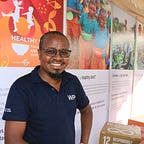Food rations are a lifeline for families affected by drought
Many have lost their livestock and with it their livelihood
Shilaabo town is named after a water well that sits on the edge of the village. Young men draw water, pulling one bucket after another, while singing praises to the handful of camels they are religiously watering.
“Hahabale! Isasogad (they [camels] have come). Hahabale! Isasotag! (they are standing ready to drink)”.
Shilaabo is almost 150 km from the Somali border, towards Beledweyne town. Here livestock are central to the way of life and are often the only source of food. But over the years, droughts have claimed countless animals’ lives, leaving many families destitute.
Ardo Mohamed Sharmarke lives here with her six children, the eldest of whom is 12 years old. She is divorced and now the sole provider of her family.
“I don’t have any animals,” says Ardo. “I had some 50 goats but they all died due to droughts — the last one died about seven years ago.”
It is a daily struggle for Ardo to feed her family, let alone provide a nutritious meal. She relies on well-wishing neighbours or sends her eldest child to collect firewood to sell. Ardo only has a fistful of sorghum and about half a kilogram of rice in her kitchen to feed her large family.
“I do not have any food at home,” says Ardo. “Yesterday I made a little injera [soft thin bread] from sorghum flour, and we had that with strong tea and water.
Respite for Ramadan
Life for Faadumo Maalim Mohamed, a mother of seven, is similar to Ardo’s.
“We ate rice only for iftar [breaking the fast] last evening. This morning for suhoor [pre-dawn meal], we only had tea,” says Faadumo. “I will grind the maize and make posho [maize meal] and beans stew,” she says.
Both Ardo and Faadumo say that Ramadan is not the only time they skip meals. At best, Faadumo cooks two meals a day — breakfast and dinner.
It is common practice for families to skip meals to stretch the little food available for longer, especially when they don’t know where their next meal will come from.
In Somali Region, the Disaster Prevention and Preparedness Bureau (DPPB) is WFP’s primary counterpart for relief food distributions. There are close to 1,200 sites across the region where food-insecure families collect rations from the WFP.
Abdi Rasid, the head of the woreda’s (district) DPPB chapter in Shilaabo, says that the people receiving relief food are all selected by the community in a process that involves the kebele (village) leaders.
“We select the poorest of the poor,” says Abdi. “These are the families that do not have any other source of food or income — those without livestock or any other form of earning a living.”
Ardo and Faadumo fit this description.
“I collected maize, beans and vegetable oil. Today, I will prepare iftar for my family,” says Ardo. “This food will not last us the whole month because we are a large family. Allah will provide for the rest of the days.”
Focusing on those most in need
The Government of Ethiopia and WFP are conducting targeted relief food distributions in the most food-insecure areas, which are determined following government-led assessments. This means that WFP can now focus its resources on those most in need.
According to the 2019 Humanitarian Response Plan, 8 million people are in need of emergency food or cash assistance in Ethiopia. With support from donors such as USAID, WFP is providing food assistance to close to 2.3 million, including 1.1 million internally displaced persons.
In Somali Region, where the highest numbers of people in need of food assistance are found, WFP is reaching 1.6 million people with close to 28,000 mt of food every one and a half months.
Each person is entitled to 15 kg of cereals, 1.5 kg of pulses and 0.45 kg of fortified vegetable oil, which gives a total of 16.95 kg of food per person.
However, this assistance is under threat due to a shortage of funds. WFP requires $220 million to continue providing this life-saving support for the next six months (May-October).
“I’m extremely grateful for this food. I’m very, very thankful,” says Ardo. “Without this food, life would be much harder.”
Click here to learn more about WFP’s work in Ethiopia.
